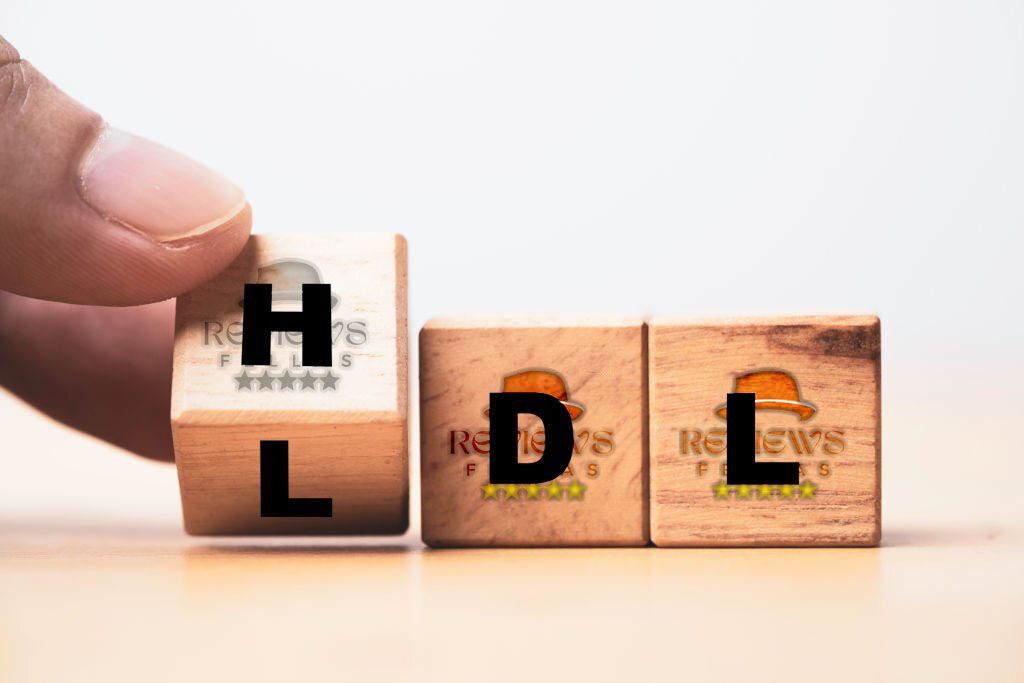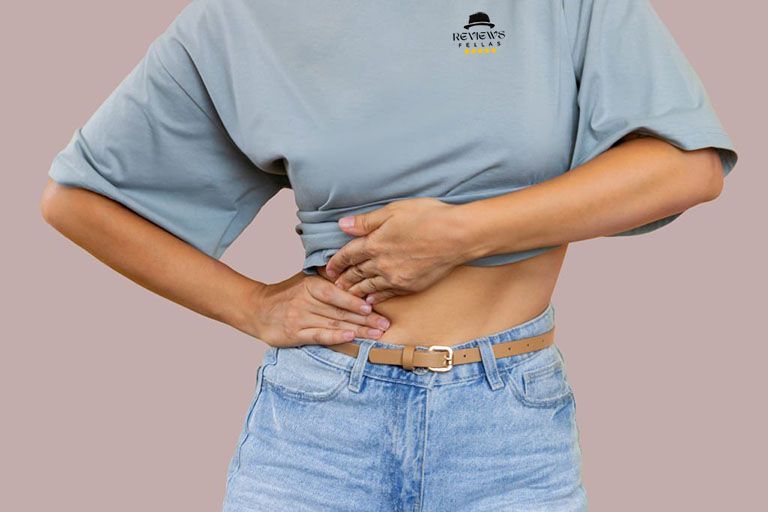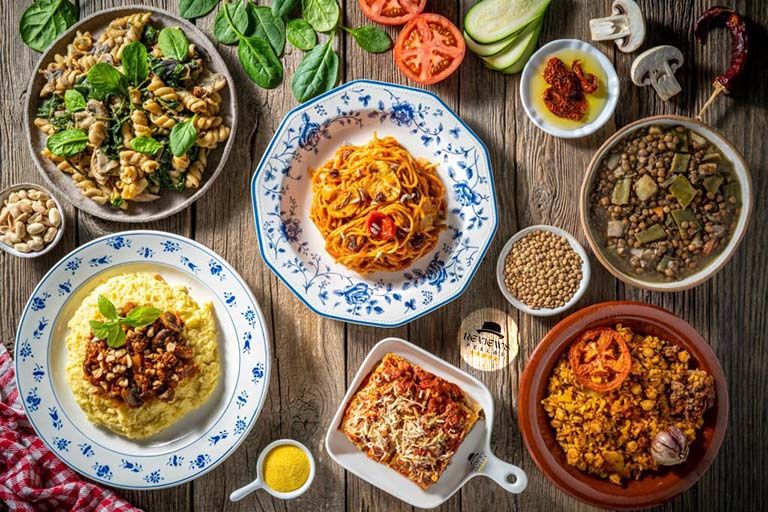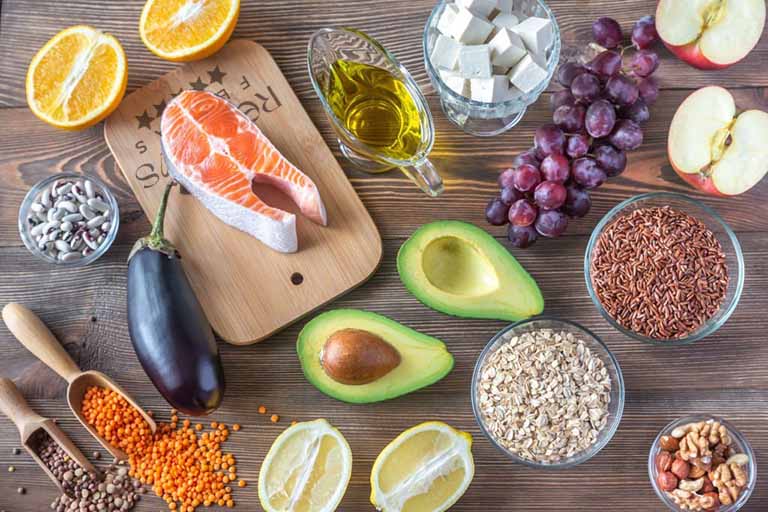This article is reviewed, corrected, and approved by: Julia Weiss CNP| RN | MPH
Our bodies contain waxy, fat-like substances called cholesterol. It plays an essential role in building healthy cells and producing hormones, but too much cholesterol can be harmful to our health.
As a result of elevated blood cholesterol levels, plaque can build up in the arteries, enhancing the danger of developing coronary artery disease and stroke. Maintaining low cholesterol levels is crucial for overall health and well-being. The levels of cholesterol could be managed with the aid of a low-cholesterol diet plan.
What Are Cholesterol Levels?

Blood cholesterol levels refer to how much cholesterol is found in an individual's blood. Cholesterol is a fatty wax, classified as a lipid-like triglyceride. Generated in the liver and found in some dietary sources.
There are two distinct forms of cholesterol
The main cause of elevated blood cholesterol levels is “LDL cholesterol,” also known as bad cholesterol. Cardiovascular diseases and strokes are more likely to occur when plaque forms in the arteries as a result of excessive levels of LDL cholesterol.
The symptoms of high cholesterol levels are often absent. So, it is necessary to track your cholesterol levels often and maintain a balanced diet and lifestyle.
Types of Cholesterol (HDL, LDL)
Knowing the types of cholesterol levels is necessary before making a diet plan for cholesterol.
- High-density lipoprotein (HDL) cholesterol plays a crucial role in the process of elimination of the body's excess cholesterol and its subsequent absorption into the liver for processing. It's also known as "good" cholesterol.
- High levels of low-density lipoprotein (LDL), also known as bad cholesterol letters, are associated with plaque buildup in the arteries and an increased risk of cardiovascular disease, and narrow and hardened blood flow to the heart, brain, and other organs.
In addition to limiting or excluding some foods, a diet intended for lowering cholesterol levels should include a variety of fruits, vegetables, healthy grains, and lean protein sources such as beans, chicken, and fish.
Fiber and other nutrients found in these foods may improve heart health. Choosing healthy fats such as avocados, olive oil, seeds and nuts is also important. Consumption of these fats can decrease LDL cholesterol, while HDL cholesterol levels can be increased.
Risks Associated with High Cholesterol Levels

Heart disease and stroke are much more likely to occur when your cholesterol levels are high. If blood has too much cholesterol accumulates, it can cause the arteries to become narrower and less pliable, which is called atherosclerosis.
Atherosclerosis can cause coronary arteries to narrow, which can cause chest pain or angina. A blood clot blocking the artery can lead to a heart attack. In the same way, atherosclerosis can cause strokes when it causes problems with the supply of blood to the cerebral cortex (brain).
High cholesterol increases the risk of health conditions, including:
- Heart disease
- Cholesterol ICD 10
- Peripheral artery disease (PAD)
- Atherosclerosis
- Gallstones
- Pancreatitis
Making lifestyle changes such as following a low-cholesterol diet plan, exercising regularly, managing stress levels, and avoiding smoking can help manage cholesterol levels and improve overall health. In certain cases, lowering excessive cholesterol levels may necessitate pharmacological intervention.
Low Cholesterol Symptoms
Low cholesterol can cause a wide range of symptoms, including the following:
- Dizziness
- Often feeling exhausted
- Confusion or trouble remembering
- Often mood swings
- Nerve damage Lower Immunity
- Symptoms of digestive distress, such as nausea, bloating, or diarrhea
Understanding Cholesterol and Blood Pressure
Cholesterol and blood pressure are two important factors that contribute to heart health. The percentage or quantity of cholesterol found in the bloodstream is referred to as cholesterol. Blood pressure, on the other hand, refers to blood pumped by the heart; it exerts a force on the walls of the arteries.
Blood pressure can be controlled with changes in lifestyle, such as maintaining a healthy weight, consuming a low-sodium diet, reducing alcohol consumption, giving up smoking, and engaging in regular exercise. Medication and consultation with a health expert may be required in some circumstances to manage blood pressure.
Normal Ranges for Blood Pressure and Cholesterol
Optimal levels of blood pressure and cholesterol for men and women
Blood Pressure
- Normal-blood pressure: less than 120/80 mmHg
- Elevated-blood pressure: 120-129/less than 80 mmHg
- High blood pressure (Hypertension) Stage 1: 130-139/80-89 mmHg
- High blood pressure (Hypertension) Stage 2: 140/90 mmHg or higher
- Hypertensive Crisis (Emergency care needed): higher than 180/120 mmHg
Cholesterol
- Total cholesterol: less than 200 mg/dL
- LDL (low-density lipoprotein) cholesterol: less than 100 mg/dL
- HDL (high-density lipoprotein) cholesterol: 60 mg/dL or higher
- Triglycerides: less than 150 mg/dL
However, these numbers may vary depending on individual factors such as age, gender, family history (genetics), and other health conditions. Prevention of cardiovascular disease and stroke is also possible by managing blood pressure through lifestyle changes and medication if necessary. Regular monitoring of cholesterol and blood pressure levels is essential.
Mediterranean and Vegetarian Diet

Mediterranean and vegetarian best diet options, and both popular dietary patterns have been associated with numerous health benefits. While there are some commonalities between the two, there are also key distinctions that set them apart.
Mediterranean diets follow the traditional diets of people who live in the Mediterranean region, such as Greece, Italy, and Spain. In addition to vegetables, fruits, nuts, whole grains, seeds, legumes, fish, and olive oil, it encourages the consumption of minimally processed foods. Also, dairy, eggs, poultry, red meat, and sweets are moderately present.
Vegetarian diets, however, do not include meat (both red and white), and fish. Different variations for vegan diet are recommended by dietitians. These include dairy products and protein sources like eggs or just pure vegan diet without any animal or dairy products.
Researchers indicate that the Mediterranean diet is particularly effective in reducing the risk of cardiovascular disease, while both diets are known to lower the chances of chronic diseases such as heart disease, diabetes, and some types of cancer. According to scientific research, eating a vegetarian diet may lower the risk of cancer, especially colon cancer.
Mediterranean diets have more protein and fat than vegetarian diets, but the fat comes from healthful sources like olive oil and almonds. Vegetarian diets may lack animal-based nutrients such as vitamin B12, iron, and omega-3 fatty acids.
Finally, both Mediterranean and vegetarian diets are healthy dietary patterns that offer numerous health benefits. The choice between the two may depend on personal preferences, cultural background, and ethical beliefs.
What Mediterranean to Eat and What to Avoid?
To lower cholesterol levels, eat these foods:
- Fresh and seasonal fruits and vegetables
- Barley, Red rice, Oats, Brown rice
- Legumes
- Fish and seafood
- Olive oil and other healthy fats
- Nuts and seeds
- Herbs and spices
Foods to avoid on the Mediterranean Diet for lowering cholesterol levels:
- Processed food and meats (e.g., sausages, bacon)
- Foods rich in dairy fat (cheese, cream)
- Butter and margarine
- Trans fats (e.g., fried foods, baked goods)
- Refined whole grains (white bread, pasta)
- Sugary drinks and desserts.
Dietary Guidelines for Reducing Cholesterol
There is evidence that a healthy diet can reduce the risk of heart disease due to its ability to reduce cholesterol levels. Following a diet to lower cholesterol and lose weight can significantly enhance your wellness and lessen the risk of developing serious illnesses. Here are some dietary guidelines that can help to lower cholesterol:
Lowering saturated fat
Animal-based foods high in saturated fats include meat, butter, and cheese. Nevertheless, saturated fats can also be found in plant-based foods such as coconut oil, palm, and avocado oil. Avoiding or consuming less of these products regularly can help lower cholesterol levels.
Avoid trans fats
Certain margarine and processed meals, such as fried cuisine, contain trans fats. These foods raise levels of LDL cholesterol. Foods processed with trans fats include baked goods, burgers, fries, and snack foods. Both types of fats may increase LDL cholesterol levels. Dietary intake of trans and saturated fats needs to be minimized.
Choose healthy fats
Polyunsaturated and monounsaturated fats are healthier than saturated fats. Nuts, seeds, avocados, fatty seafood, and vegetable oils are excellent sources of these fats, among others.
Increase fiber intake
In the digestive tract, soluble fiber binds to cholesterol and helps to reduce LDL cholesterol levels. Vegetables, Fruits, beans, and oats are among the high-soluble-fiber foods that can help you reduce cholesterol levels. Soluble fiber is also known as a natural cholesterol blocker.
Eat more plant-based foods or vegetarian food
A plant-based diet can be beneficial for lowering cholesterol levels. The low saturated fat and high fiber content of plant-based diets may assist in lowering bad LDL cholesterol.
Choose lean protein sources.
Chicken, turkey, fish, tofu, and lentils are all wonderful examples of lean protein sources.
Limit added sugars and refined carbohydrates
Added sugars and refined carbohydrates can raise triglyceride levels, which can contribute to high cholesterol levels. Limit intake of sugary beverages, sweets, and refined grains such as white bread and pasta.
Include nuts and seeds
Including nuts and seeds in your diet can provide a healthy source of fats that may reduce cholesterol levels when consumed moderately.
Choose healthy oils
Instead of butter or other high-fat spreads, use olive oil, canola oil, or avocado oil.
Low cholesterol cookbook
Specifically for individuals looking to manage their cholesterol level, a low cholesterol cookbook provides low cholesterol recipes. The cookbook will instruct you on which food to try, how to cook, and what foods to avoid.
By following these dietary guidelines, the risk of heart disease can be reduced if you lower your cholesterol levels. You can find healthy low cholesterol dessert recipes, low cholesterol soup recipes, and vegetarian low cholesterol recipes that help you to keep your cholesterol levels safe.
To prevent cardiovascular disease and stroke, keeping low cholesterol levels is mandatory. Healthy lifestyles can be achieved by following a low-cholesterol diet, exercising regularly, managing stress levels, and avoiding smoking. Individuals can keep their cholesterol levels in check and improve their overall health.
Cholesterol Lowering Foods Chart

Cholesterol in the blood can be lowered by eating a low-cholesterol diet, which involves cutting back on or completely cutting out foods high in trans and saturated fats. Levels of cholesterol can be effectively managed by following a low-cholesterol diet plan.
- Oats and oat bran.
- Barley and other whole grains, such as brown rice.
- Beans and legumes, such as chickpeas, lentils, and kidney beans.
- Nuts, especially almonds, walnuts, and pistachios.
- Fruits, such as grapes, apples, strawberries, and citrus fruits.
- Vegetables, especially leafy greens like spinach and kale, as well as broccoli and Brussels sprouts.
- Soy products, such as tofu and green soybeans.
- Fish that are high in fat and antioxidant, such as sardines, mackerel, and salmon.
- It is common to add sterols and stanols to margarine, orange juice, and yogurt.
Heart disease and stroke risk can be minimized through dietary changes. Eat foods with high fiber, omega-3 fatty acids, and other beneficial nutrients, such as sea fish. Consuming diet-rich food will help lower LDL cholesterol while increasing good HDL cholesterol.
Additional Diet-related Cholesterol-lowering Factors
Lowering cholesterol with diet involves more than just choosing the right foods. Here are some other factors to consider:
Portion Size
Eating smaller portions can help reduce cholesterol levels. Eating too much, even healthy foods increase weight and cholesterol levels.
Cooking Methods
Cholesterol levels can also be affected by how you prepare your food. In comparison to frying, baking, grilling, and roasting are healthier.
Exercise
Physical activity can help reduce LDL (bad) cholesterol and increase HDL (good) cholesterol.
Weight Management
In order to improve cholesterol levels, it is important to maintain a healthy weight or lose obesity. If you lose just 5-10% of your body weight, your cholesterol levels will improve significantly. diet to lower cholesterol and lose weight
Alcohol Consumption
Moderate alcohol consumption can help to increase HDL cholesterol (good cholesterol). Overconsumption of alcohol, however, can increase weight gain and cholesterol levels.
Smoking
The risk of heart disease and high cholesterol can be reduced by quitting smoking. Heart disease risk can be lowered by adopting these habits in addition to eating cholesterol- and heart-healthy diet plans.
Conclusion
Low levels of cholesterol are crucial for maintaining good heart health. These diet modifications can improve health and reduce heart disease risk. There are also lots of diet plan books available to enrich South beach diet book is one of those. It is among the most popular diet plans developed by American cardiologist Dr. Arthur Agatston.
If your diet plan is not enough to lower your cholesterol level, you may consider trying medicine. You may find many cholesterol-lowering supplements such as queen helene cholesterol, qunol ultra coq 10. Before taking any supplement, you must consult with a doctor. They can provide you with guidance on creating a personalized low-cholesterol diet plan that works best for you.
It is never too late to make positive changes to your diet and lifestyle. Lastly, regular exercising and coping with stress, taking less medication as possible assist you in leading a healthy life.
Frequently Asked Questions
Q: Can high cholesterol cause dizziness?
Ans: High cholesterol does not cause dizziness directly. If cholesterol is high, various conditions can cause dizziness, including high blood pressure, strokes, and risk of heart disease.
Q: Can high cholesterol cause headaches?
Ans: High cholesterol does not directly cause headaches.
Q: How much cholesterol is in chicken breast??
Ans: Generally, 3 ounces (85 grams) of boneless, skinless chicken breast contain 60 milligrams of cholesterol.
Q: Do oysters high in cholesterol?
Ans: Cholesterol is high in oysters. Do you have any idea what is the cholesterol content of oysters?" It is about 67 milligrams of cholesterol are contained in a 3-ounce serving of cooked Pacific oysters, and the amount may vary depending on the type of oyster and how it was prepared.
Q: What is the best way to lower my cholesterol in 7 days?
Ans: The best way to lower cholesterol in 7 days is by eating fruits and vegetables, lean protein, low- or no-saturated/trans fats, carbohydrates, exercising, and not smoking are all important parts of a healthy lifestyle.
Q: What are the 15 foods that lower cholesterol?
Ans: Oat, barley, beans, nuts, avocado, fatty fish, olive oil, flaxseed, apples, berries, dark chocolate, spinach, soy products, garlic and Green Tea.
Q: What does Soluble Fiber do?
Ans: In the digestive tract, soluble dietary fiber breaks down in the water and creates a gel-like fluid.
Q: What to Look Out for When Shopping for Foods to Lower Cholesterol?
Ans: When shopping for foods to lower cholesterol, keep these things in mind: High fiber, unsaturated fats, low trans-fat, plant-based food, contain low sugar, and finally, read food labels carefully to identify the ingredients and nutritional value of the foods you are purchasing.
Q: Is salt bad for cholesterol?
Ans: By increasing blood pressure, salt indirectly affects cholesterol levels but does not directly affect cholesterol levels.
Q: What are naturally lowering cholesterol drinks?
Ans: Here are some natural drinks to lower cholesterol, like pomegranate juice, beetroot juice, cranberry juice, apple cider vinegar, green tea, black tea, and black tea.
Q: How much cholesterol is in crab?
Ans: According to the National Nutrient Database (USDA), 1 cup of cooked blue crab contains approximately 155 milligrams of cholesterol.
Q: cholesterol deposits vs milia
Ans: Both cholesterol deposits and milia can appear as small bumps on the skin. Cholesterol deposits, commonly termed as xanthomas, are caused by fat deposits under the skin.
Q: Does physical activity lower LDL cholesterol?
Ans: Yes. Some scientific research has shown that exercise can lower your LDL cholesterol by up to 15-17%.


